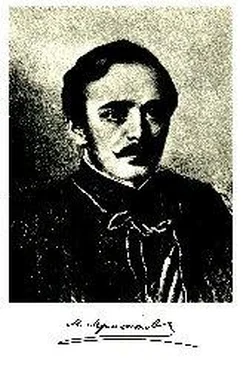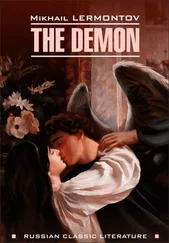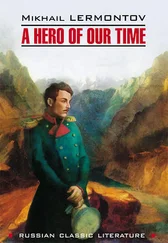About an hour passed in this way. The moon shone into the window and a beam of light played on the earth floor of the hut. Suddenly a shadow darted across the bright strip on the floor. I got up and looked out of the window. Someone again ran past and disappeared, God knows where. It didn't seem possible that the somebody could have run down the cliff to the shore, yet he could not have gone anywhere else. I got up, put on my shirt, fastened a knife to my belt, and softly went out of the hut. The blind boy was coming towards me. I moved close to the fence, and he went past with sure though cautious tread. He carried a bundle under his arm. Turning toward the boat landing, he began down along a narrow, steep path. "On that day [72] "On that day shall the mute sing out and the blind shall see:" Isaiah 35:5-6, 29:18.
shall the mute sing out and the blind shall see,"... I thought, following close enough not to lose sight of him.
In the meantime clouds began to close around the moon and a fog came up at sea. The stern light of the ship nearest the shore was barely visible through it. On the shore gleamed the foam of the breakers [73] Nabokov insists the word used means "boulders" and goes into a long explanation of why it should be translated "billows".
, which threatened to submerge it at any moment. Picking my way with difficulty down the steep slope, I saw the blind boy stop, then turn to the right and proceed so close to the water that it seemed the waves must surely grab him and carry him out to sea. It was obvious, however, that this was not the first time he was taking this stroll, judging by the confidence with which he stepped from stone to stone and avoided the holes. At last he stopped as if listening for something, then sat down on the ground with his bundle beside him. Hidden behind a projecting cliff I watched his movements. A few minutes later a figure in white appeared from the other side, walked up to the blind boy and sat down beside him. The wind carried fragments of their conversation to me.
"What do you say, blind one?" a woman's voice said. "The storm is too heavy; Yanko won't come."
"Yanko is not afraid of storms," the other replied.
"The fog's thickening," came the woman's voice again with a note of sadness.
"It will be easier to slip by the patrol ships in the fog," was the reply.
"What if he's drowned?"
"Well, what of it? You'll go to church on Sunday without a new ribbon."
A silence followed. I was struck, however, by one thing: the blind boy had spoken to me in the Ukrainian dialect, and now he was speaking pure Russian.
"You see, I'm right," said the blind boy again, clapping his hands. "Yanko does not fear the sea, or the winds, or the fog, or yet the coast patrols. Listen, that's not the waves splashing, you can't fool me; those are his long oars."
The woman jumped up and peered anxiously into the distance.
"You're raving, blind one," she said. "I don't see anything."
I must admit that, strain as I did, I couldn't detect anything like a boat in the distance. Some ten minutes had passed that way when a black speck now growing larger, now smaller, appeared among the mountainous billows, Slowly climbing to the crests of the waves and sharply dropping into the troughs, the boat approached the shore. It was an very brave oarsman who ventured on a night like this to cross the fifteen miles of the strait, and the reason that was behind it must have been important indeed. Thus thinking, my heart involuntarily quickening its beat, I watched the frail craft dive with the dexterity of a duck and then leap up from the watery chasm through the flying foam with a swift movement of the oars that recalled the thrust of wings. I thought it would have to crash full force against the shore and be dashed to pieces, but it neatly swung around and slipped safely into a tiny bay. A man of medium size, wearing a Tatar sheepskin cap, stepped from the boat. He motioned with his hand and all three began to haul something from the craft. The cargo was so great that to this day I can't understand why the boat hadn't sunk. Each shouldering a bundle, they set out along the shore and I soon lost sight of them. I had to return to my lodgings. I must admit, however, that all these strange doings alarmed me, and I could hardly wait for the morning.
My Cossack was very much surprised when upon waking up he found me fully dressed, but I gave him no explanation. After admiring for some time the blue sky mottled with ragged little clouds and the Crimean coast which spread out in a line of mauve in the distance and ended in a crag topped by the white tower of a lighthouse, I set out for the Phanagoria [74] as the name indicates, this is what is left of an ancient Greek colony on the Black Sea.
fort to inquire at the commandant's when I could leave for Gelendzhik.
But, alas, the commandant was unable to tell me anything definite. The vessels in the harbor were either coast guard ships or merchant boats which hadn't even begun loading. "Perhaps there'll be a packet boat in three or four days," the commandant said, "and then we'll see." I returned to my lodgings sad and angry. My Cossack met me at the door with a scared look on his face.
"Looks bad, sir!" he said.
"Yes, my friend. The Lord knows when we will get away!" Now he looked still more worried. Bending toward me, he whispered: "It's an unclean A Hero of Our Time By Mikhail Lermontov Contents The Author's Preface (to the 2nd edition) Bela Maksim Maksimich Introduction to Pechorin's Journal Taman Princess Mary The Fatalist [Notes]
place here! Today I met a Cossack sergeant I know-we were in the same detachment last year. When I told him where we'd stopped he said to me: 'Brother, it's unclean there; the people are no good!' And, come to think of it, what sort of a fellow is this blind man? Goes everywhere alone, to the market, for bread, and to fetch water. You can see they're used to that sort of thing here."
"What of it? Has the mistress of the house appeared at least?"
"While you were out today an old woman came with her daughter."
"What daughter? She has no daughter."
"God knows who she is then, if she's not. The old woman is in the hut now."
I went inside. The stove had been stoked up until it was hot and a dinner rather sumptuous for poor folk was cooking. To all my questions the old woman replied that she was deaf and couldn't hear me. What could I do? I addressed the blind boy, who was sitting in front of the stove feeding brushwood into the fire. "Now tell me, you blind imp," said I, taking hold of his ear, "where did you go last night with that bundle, eh?" He burst into tears and began howling and wailing: "Where'd I go? Nowhere. And I don't know of any bundle." This time the old woman heard what was going on and began to grumble: "Of all the things to imagine, and about a poor boy like him, too! Why can't you leave him alone? What has he done to you?" I got tired of this and I walked out firmly resolved to find the key to the riddle.
I wrapped my cloak around me and sat down on a boulder beside the wall, looking into the distance. Before me spread the sea agitated by last night's gale, and its monotonous roar like the murmuring of a city falling into slumber reminded me of bygone years, carrying my thoughts to the North, to our frigid capital. Stirred by memories I forgot all else. An hour and perhaps more passed that way. Suddenly something like a song caught my ear. It was indeed a song, and the voice was pleasant, feminine, but where did it come from? I listened to it. It was a strange melody, now slow and plaintive, now fast and lively. I looked around, but saw no one. I listened again, and the sound seemed to drop from the heavens. I looked up, and on the roof of the hut I saw a girl in a striped dress, a real mermaid [75] actually, "undine," as in Zhukovsky's poem Undina and an 1811 French romance.
with loose long hair. Shading her eyes from the sun with her hand, she was looking into the distance, now smiling and talking to herself, now starting up the song again.
Читать дальше

![Михаил Лермонтов - A Hero of Our Time [New Translation]](/books/27671/mihail-lermontov-a-hero-of-our-time-new-translati-thumb.webp)










